There are 365 days in a year. To find the salary for one year, multiply 165 by 365 as:
Therefore, he will get Rs 60225.
The chapter Ways to Multiply and Divide focuses on dealing with the various methods of multiplication and division. It helps the students to learn how to do calculation including long division and multiplication. It covers the topics: philosophy Multiplication philosophyLong division philosophyWord Problems involving Multiplication and Division NCERT Math-Magic questions are answered in a simple and engaging manner. We have also related 'Learning Concepts and interactive worksheets with the solutions. Our 'Learning Beyond' segment caters to all the probable questions that a child might think out of curiosity. Download Chapter 13 Ways to Multiply and Divide in PDF format for free here.
The NCERT Solutions Maths Class 5 Chapter 13 - Ways To Multiply And Divide are tailored to help the students master the concepts that are key to success in their classrooms. The solutions given in the PDF are developed by experts and correlate with the CBSE syllabus of 2025-2026. These solutions provide thorough explanations with a step-by-step approach to solving problems. Students can easily get a hold of the subject and learn the basics with a deeper understanding. Additionally, they can practice better, be confident, and perform well in their examinations with the support of this PDF.
Download PDF
Students can access the NCERT Solutions Maths Class 5 Chapter 13 - Ways To Multiply And Divide. Curated by experts according to the CBSE syllabus for 2025–2026, these step-by-step solutions make Maths much easier to understand and learn for the students. These solutions can be used in practice by students to attain skills in solving problems, reinforce important learning objectives, and be well-prepared for tests.
b) If he is called for all days of the year, how much salary will he get?
There are 365 days in a year. To find the salary for one year, multiply 165 by 365 as:
Therefore, he will get Rs 60225.
Maniratnam is the cashier of King Jayan. His job is to find out the salary of all the people who work for the king. This chart shows how much salary each person gets in a day.
| Person | Salary in a day |
|---|---|
| Minister | Rs 195 |
| Horse rider | Rs 76 |
| Cook | Rs 65 |
Maniratnam wanted to calculate the salary of the cook for the month of January. He wrote
Rupees 1800 + 1500 + 60 + 5 = Rs …………..
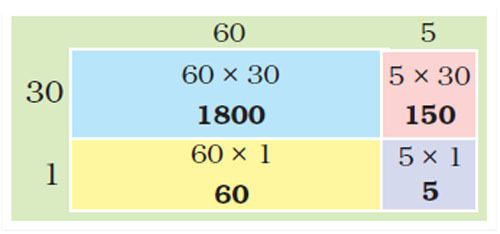
Rupees 1800 + 150 + 60 + 5 = Rs 2015
Now Bhanu tried to find the salary of a minister for the month of January. He wanted to multiply 195 × 31.

The correct answer is:
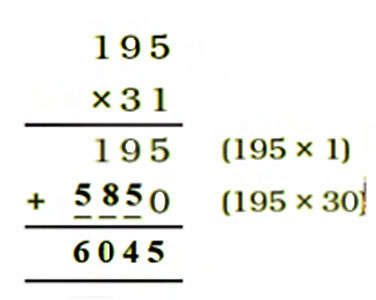
Maniratnam’s daughter Bela has learnt another method to multiply. She wrote like this and showed it to Bhanu, her brother.

he correct answer is:

Do these in your notebook using Bela’s method.
a) 47 × 19 b) 188 × 91 c) 63 × 57
d) 225 × 22 e) 360 × 12 f) 163 × 42

The correct answer is:

Use Bela’s method to multiply these numbers.
a) 32 × 46
b) 67 × 18

a) 32 × 46 = 1472
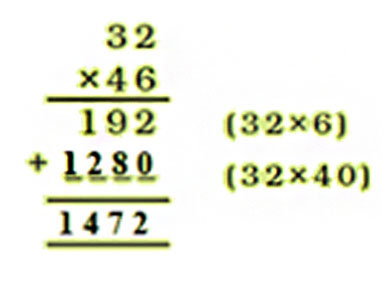
b) 67 × 18 = 1206
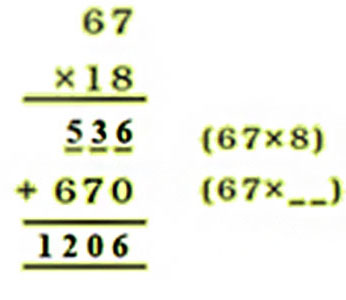

Shantaram is a special cook who comes only on party days. Last year he was called for only 28 days. For each day he has to be paid Rs 165.
a) Find out how much money he will get in all
For one day the payment is Rs 165. To find the payment for 28 days, multiply 165 by 28 as:
Therefore, he will get Rs 4620 for 28 days.
c) Now find the salaries of the minister and horse rider for 1 year.
Salary of the minister is Rs 195 for one day. To find the salary for 1 year (365 days), multiply 195 by 365 as:
Therefore, the minister’s salary for 1 year is Rs 71175.
Salary of a horse rider is Rs 95 for 1 day. To find the salary for 1 year (365 days), multiply 365 by 95 as:
Therefore, the horse rider’s salary for 1 year is Rs 34675.
b) If Soha’s heart beats 72 times in one minute.
i) How many times does it beat in one hour?
ii) Now find out how many times it beats in one day.
iii) Count your own heart beats to find out how many times your heart beats in one week.
i) To find the number of heart beats in one hour (60 minutes), multiply 72 by 60 as:
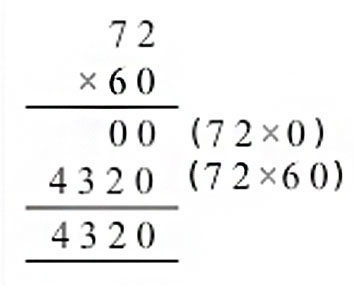
Therefore, her heart beats 4320 times in one hour.
ii) Since the heart beats 4320 times in one hour, to find the heart beats for 1 day (24 hours) multiply 4320 by 24 as:
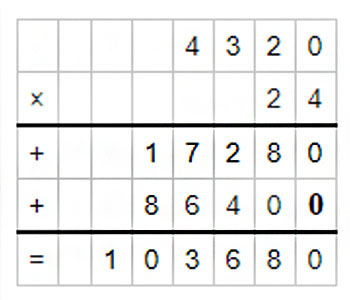
Therefore, the heart beats 103680 times in one day.
iii) Do it by yourself.
c) A baby elephant drinks around 12 L of milk every day. How much milk will it drink in two years?
1 year = 365 days
2 year = 365 × 2 = 730 days
Since the elephant drinks 12 L of milk per day, multiply 730 by 12 to get the amount of milk for two years.
Therefore, the correct answer is 8760 L.
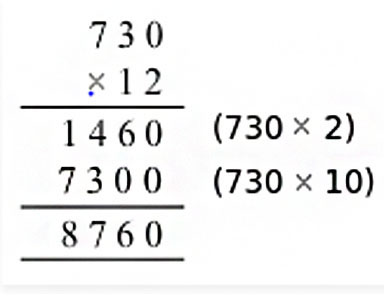
a) Sohan drinks 8 glasses of water every day.
i) How many glasses will he drink in one month?
ii) How many glasses will he drink in one year?
iii) If 125 people living in a colony drink 8 glasses of water in a day, how much water will they drink in a year?
i) Since Sohan drinks 8 glasses of water per day, to find the number of glasses of water in 1 month (30 days), multiply 30 by 8.
30 × 8 = 240
Therefore, he will drink 240 glasses of water in one month.
ii) Since Sohan drinks 8 glasses of water per day, to find the number of glasses of water in 1 year (365 days), multiply 365 by 8.
365 × 8 = 2920
Therefore, he will drink 2920 glasses of water in one year.
iii) One person drinks 2920 glasses of water in 1 year. To find the number of glasses for 125 persons, multiply 2920 by 125 as:
Therefore, the correct answer is 365000 glasses of water.
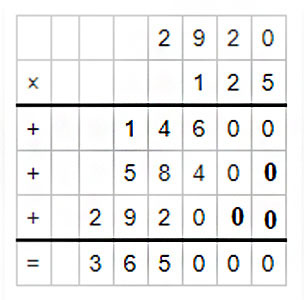
d) A baby blue whale drinks around 200 L of milk in one day. Just imagine how much milk that is! Find out in how many days your family would use 200 L milk.
Do it by yourself. Answers may vary.
He bought field (A) at the rate of Rs 95 for a square metre, field (B) at Rs 110 for a square metre and field (C) at Rs 120 for a square metre. Find the cost of all three fields.
For Field (A)
Area = 756 square m, rate = Rs 95 per square m.
Total cost = 756 × 95
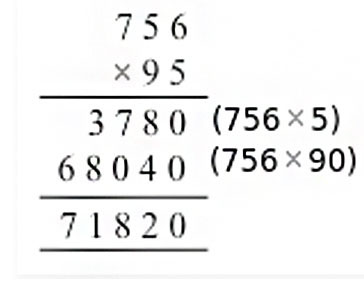
Therefore, the total cost is Rs 71820.
For Field (B)
Area = 432 square m, rate = Rs 110 per square m.
Total cost = 432 × 110
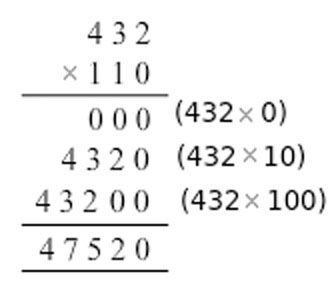
Therefore, the total cost is Rs 47520.
For Field (C)
Area = 513 square m, rate = Rs 120 per square m.
Total cost = 513 × 120
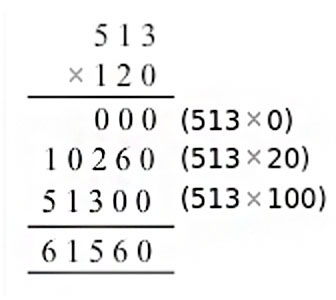
Therefore, the total cost is Rs 61560.
Now, the total cost of all the three fields = 47520 + 61560 + 71820 = Rs 180900
Karunya bought three fields.
Find the area of all the three fields.
a) Field (A) ____________ square metre.
b) Field (B) ____________ square metre.
c) Field (C) ____________ square metre.
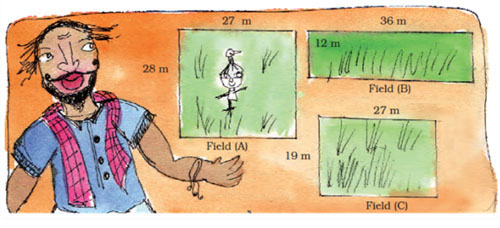
a) Length of the field is 28 m, and its width is 27 m.
Area = Length × Width
Therefore,
Area = 27 × 28
Do the multiplication as shown below.
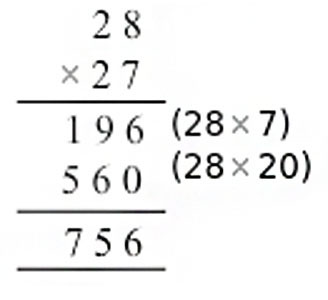
Hence, the area of field A is 756 square m.
b) Length of the field is 36 m, and its width is 12 m.
Area = Length × Width
Therefore,
Area = 36 × 12
Do the multiplication as shown below.
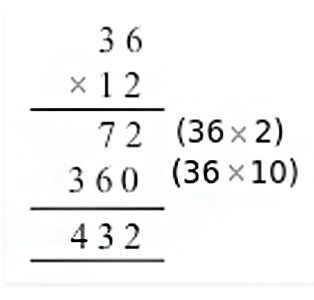
Hence, the area of field B is 432 square m.
c) Length of the field is 27 m, and its width is 19 m.
Area = Length × Width
Therefore,
Area = 27 × 19 = 513
Hence, the area of the field C is 513 square m.
Governments of different states have said that farm workers should not be paid less than this salary for a day’s work.
The table shows the amounts fixed by four states.
a) For farm work which state has fixed the highest amount? Which state has fixed the lowest?
b) Bhairon Singh is a worker in Rajasthan. If he works for 8 weeks on the farm, how much will he earn?
c) Neelam is a worker in Haryana. If she works for 2½ months on the farm, how much will she earn?
d) How much more will a farm worker in Madhya Pradesh get than a worker in Orissa after working for 9 weeks?
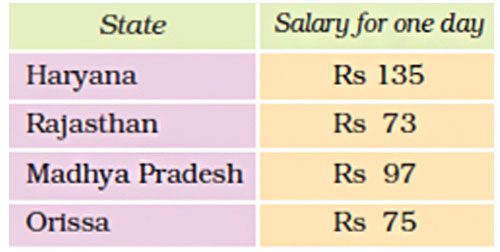
a) Observe the given table. The highest amount is fixed by Haryana, that is Rs 135 for one day’s work. The lowest amount is fixed by Rajasthan, that is Rs 73 for one day’s work.
b) 1 week = 7 days
So, 8 weeks = 8 × 7 = 56 days
In Rajasthan the payment is Rs 73 per day. To find the payment for 8 weeks (56 days), multiply 73 by 56 as:
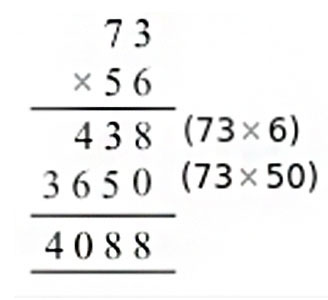
Therefore, the correct answer is Rs 4088.
c) We know that 1 month = 30 days.
month = 15 days.
Therefore, 2½ months = (2 × 30) + 15 = 75 days.
In Haryana the payment for one day’s work is Rs 135. To find the payment for 75 days, multiply 135 by 75 as:
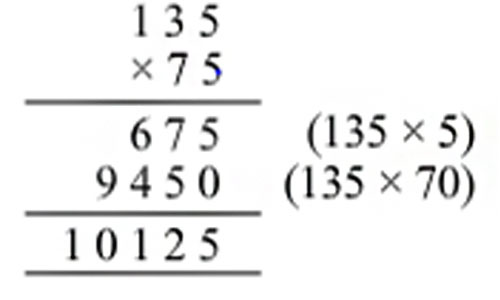
Therefore, the correct answer is Rs 10125.
d) 1 week = 7 days
⇒9 weeks = 9 × 7 = 63 days
In Orissa the payment for one day is Rs 75. To find the payment for 63 days, multiply 75 by 63.
75 × 63 = 4725
In Orissa the payment for one day is Rs 75. To find the payment for 63 days, multiply 75 by 63.
75 × 63 = 4725
In Madhya Pradesh the payment for one day is Rs 97. To find the payment for 63 days, multiply 97 by 63.
97 × 63 = 6111
The difference between 9 weeks earning in these two states is:
6111 – 4725 = 1386
Hence, the correct answer is Rs 1386.
To help farmers the State Government gave cows. Kamla Bai Gudhe also got a cow.
The cost of the cow was Rs 17,500. She had to pay Rs 5,500 and the government spent the rest of the money.
a) How much did the government spend on the cow?
b) If 9 people from her village got cows, how much did the government spend in all?
a) The cost of one cow is Rs 17,500, and Rs 5,500 needs to be paid by the owner. The government spends:
17,500 – 5,500 = 12,000
Therefore, the government spends Rs 12,000 on one cow.
b) Since the government spends Rs 12,000 on one cow, to find its total spending on 9 cows multiply 12,000 by 9.
12,000 × 9 = 1,08,000
Therefore, the government spent Rs 1,08,000 altogether.
But Kamla Bai was not happy, she had to spend Rs 85 every day on the cow. She made some money by selling the milk. But still she wanted to sell the cow.
a) If Kamla Bai spends Rs 85 a day, find out how much she will spend in one month.
b) The cow gives 8 litre of milk every day. How much will it give in one month?
c) If the milk is sold at Rs 9 per litre, how much money will Kamla Bai make in one month? ___________
d) So the money spent on keeping the cow was Rs ___________
e) Money earned by selling the milk Rs ___________ f) Which is more — money spent on the cow or money earned from it? How much?
g) Explain why she wanted to sell the cow.
a) Kamla Bai spends Rs 85 per day. To find her spending in one month, multiply 85 by 30.
85 × 30 = 2550
Therefore, she will spend Rs 2550 in one month.
b) The cow gives 8 L milk per day. To find the amount of milk in one month, multiply 30 by 8.
8 × 30 = 240
Therefore, the cow will give 240 L of milk in one month.
c) The milk is sold at Rs 9 per litre and the amount of milk the cow will give in one month is 240 L. Therefore, earning in one month by selling the milk is:
9 × 240 = 2,160
Therefore, she will earn Rs 2,160 in one month by selling the milk.
d) The money spent for keeping the cow is Rs 2,550 per month.
e) The money earned by selling the milk is Rs 2,160 per month.
f) The money spent on the cow is more
Money spent for the cow – Money earned by selling milk
= 2550 – 2160 = Rs 390
g) Since the money spent on keeping the cow is more than the money earned by selling the milk, she wanted to sell the cow.
a) Sukhi works on a farm. He is paid Rs 98 for one day. If he works for 52 days, how much will he earn?
Since he is paid Rs 98 for one day, multiply 52 by 98 to find his earning for 52 days.
Therefore, Sukhi will earn Rs 5096 in 52 days.
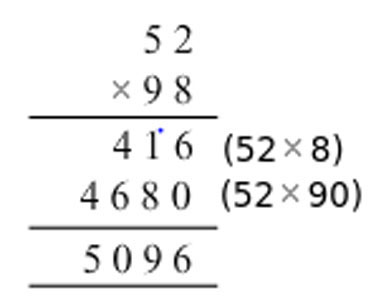
b) Hariya took a loan to build his house. He has to pay back Rs 2,750 every month for two years. How much will he pay back in 2 years?
1 year = 12 month
⇒2 years = 12 × 2 = 24 months
Since he pays Rs 2,750 per month, multiply 2,750 by 24 to find the total payback amount in 2 years.
Therefore, Hariya will pay back Rs 66,000 in 2 years.
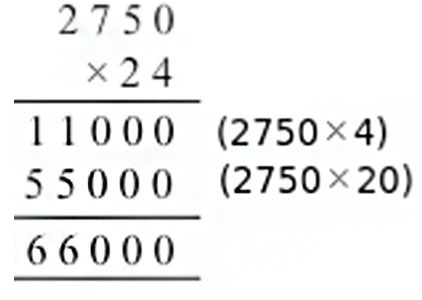
c) Ratiram is a milk seller in the city. He sells 13 litres of milk every day at Rs 23 per litre. How much does he earn?
1 L milk is for Rs 23. To find the cost of 13 L of milk, multiply 23 by 13.
Therefore, Ratiram earns Rs 299.
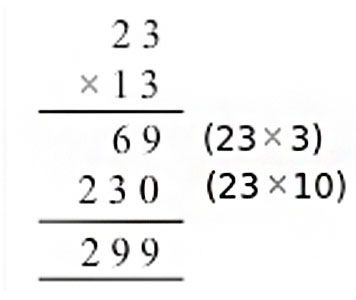
e) A company sells 1 litre of packed water for Rs 12. A shopkeeper buys 240 litres of packed water. How much does he pay?
The price of 1 L of packed water is Rs 12. To find the price of 240 L water, multiply 240 by 12.
Therefore, the shopkeeper pays Rs 2,880.
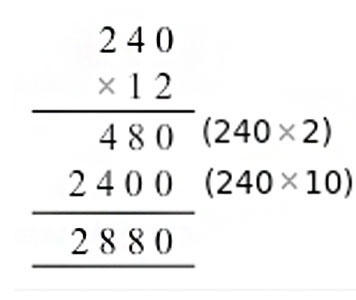
c) Tricks with your age.
Write your age __________
Multiply it by 7 __________
Again multiply the answer by 13 _________
Multiply again that answer by 11 _________
Now look at your last answer. Can you find your age in that answer? How many times does your age show in the answer?
Now try this trick with other people.
Do it by yourself. Write your age and follow the instructions. A sample answer for 15 years of age is given below.
Step 1: Age: 15
Step 2: 7 × 15 = 105
Step 3: 13 × 105 = 1,365
Step 4: 11 × 1,365 = 15,015
The age 15 appears two times in the final result, at the start, and at the end of the resultant number.
d) Going round and round.

The correct answer is:

Satish is a 13 year old boy. His father had taken a loan for farming. But the crops failed. Now Satish’s mother has to pay Rs 5000 every month for the loan. Satish started working — he looked after 17 goats of the village. He earns Rupee 1 every day for one goat.
a) How much will he earn in one month?
b) Does he earn enough to help pay the loan every month?
c) How much will he earn in one year?
a) Satish gets Rupee 1 per day for one goat.
For 17 goats, he will get Rs 17 per day.
To find his monthly earning, multiply 30 by 17.
30 × 17 = 510
Therefore, Satish will earn Rs 510 in one month.
b) Since the repayment of the loan amount is Rs 5000 per month but his monthly earning is only Rs 510, it is not enough help to pay the loan.
c) Satish earns Rs 510 in one month. To find his earning in one year, multiply 510 by 12.
Therefore, Satish will earn Rs 6120 in one year.
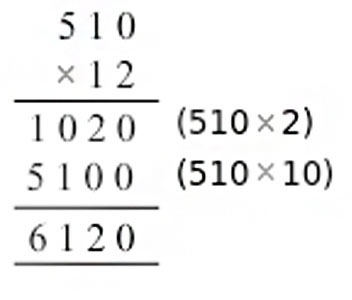
d) A farmer sells 1 litre of milk for Rs 11. In one month, he sells 210 litres of milk. How much does he earn in a month?
1 L of milk is sold for Rs 11. To find the price of 210 L of milk, multiply 210 by 11.
Therefore, the farmer earns Rs 2,310 in a month.
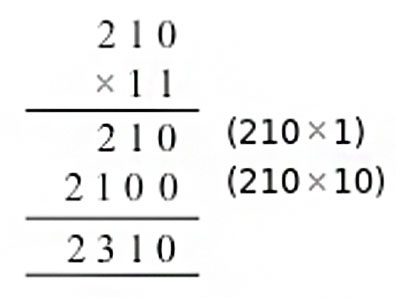
a) Look for the pattern and take this forward.
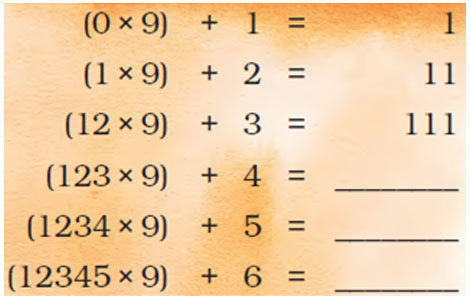
Observe the given pattern. The correct answer is:
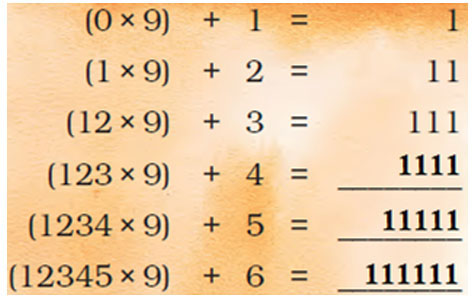
b) Each letter a, b, c stands for a number
Take a = 1, then find what the numbers b and c
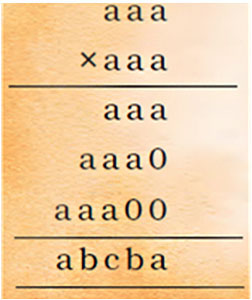
Put a = 1 and complete the multiplication steps as shown below.
Now compare the result with the given question. We have b = 2, and c = 3.
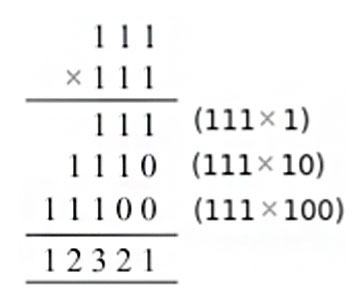
Thulasi and her husband work on Karunya’s farm. The Government has said that farm workers should be paid at least Rs 71 for one day’s work. But he pays Rs 55 to Thulasi and Rs 58 to her husband.
a) If Thulasi works for 49 days, how much money does she get?
b) If her husband works for 42 days, how much money does he get?
c) Find the money they earn together.
a) Thulasi earns Rs 55 per day.
To find her earning for 49 days, multiply 55 by 49 as:
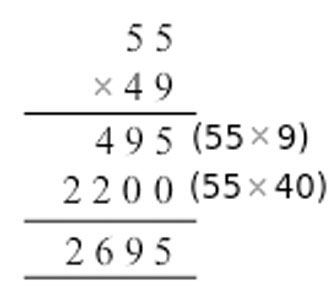
Therefore, she will get Rs 2695 for 49 days of work.
b) Her husband gets Rs 58 per day. To find his earning for 42 days, multiply 58 by 42 as:
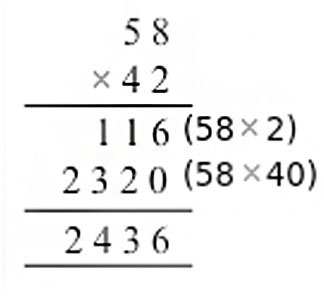
Therefore, he will get Rs 2436 for 42 days.
c) Together they earn:
Rs 2695 + Rs 2436 = Rs 5131
Try to solve these using as few steps as you can.
a) 4228 ÷ 4 b) 770 ÷ 22 c) 9872 ÷ 8
d) 672 ÷ 21 e) 772 ÷ 7 f) 639 ÷ 13
Following are the steps for given divisions.
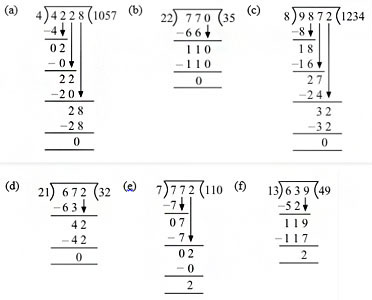
c) A gardener bought 458 apple trees. He wants to plant 15 trees in each row. How many rows can he plant? How many trees would be left over?
To find the number of rows that can be planted, divide the total number of trees by the number of trees in one row.
When we divide 458 by 15 the result is 30 and the remainder is 8. Therefore, the trees can be planted in 30 rows, and 8 trees would be left out.
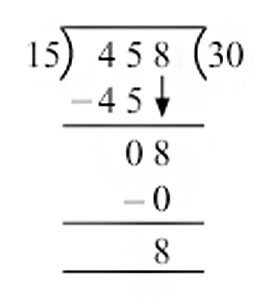
b) 836 people are watching a movie in a hall. If the hall has 44 rows, how many people can sit in 1 row?
To find the number of people sitting in one row, divide the total number of people by the number of rows. Therefore, we have
Therefore, 19 people can sit in one row.
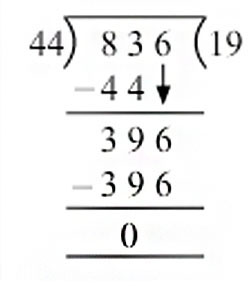
a) 576 books are to be packed in boxes. If one box has 24 books, how many boxes are needed?
To find the required number of boxes, divide 576 by 24.
Therefore, 24 boxes are required.
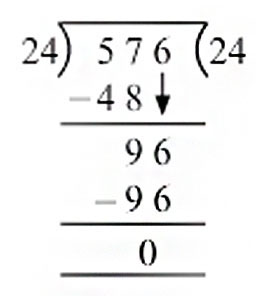
Do these divisions. Check your results by multiplication.
a) 438 ÷ 9
b) 3480 ÷ 12
c) 450 ÷ 7
d) 900 ÷ 10
e) 678 ÷ 6
f) 2475 ÷ 11
a)
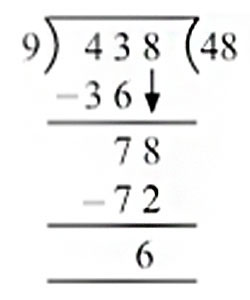
Quotient = 48, remainder = 6, and divisor = 9.
Answer Check:
Divisor × Quotient + Remainder = 9 × 48 + 6 = 438 = Dividend
b)
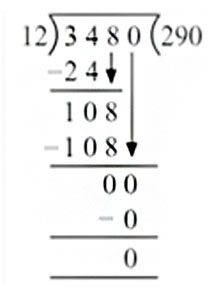
Quotient = 290, remainder = 0, and divisor = 12.
Answer Check:
Divisor × Quotient + Remainder = 12 × 290 + 0 = 3480 = Dividend
c)
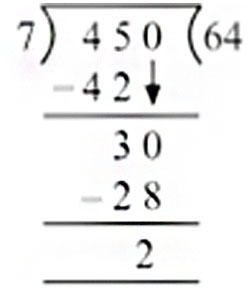
Quotient = 64, remainder = 2, and divisor = 7.
Answer Check:
Divisor × Quotient + Remainder = 7 × 64 + 2 = 450 = Dividend
d)
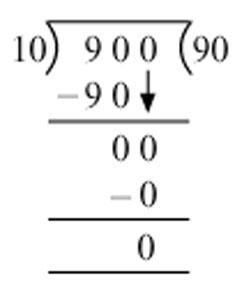
Quotient = 90, remainder = 0, and divisor = 10.
Answer Check:
Divisor × Quotient + Remainder = 10 × 90 + 0 = 900 = Dividend
e)
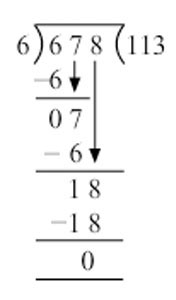
Quotient = 113, remainder = 0, and divisor = 6.
Answer Check:
Divisor × Quotient + Remainder = 6 × 113 + 0 = 678 = Dividend
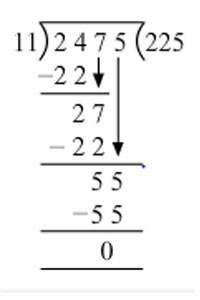
Quotient = 225, remainder = 0, and divisor = 11.
Answer Check:
Divisor × Quotient + Remainder = 11 × 225 + 0 = 2475 = Dividend
Solve the given sums and colour the answers in the grid given below See what you find.
| 21 × 16 | 15 × 7 | 93 × 2 | 17 × 5 | 10 × 10 | |
| 26 × 26 | 77 × 10 | 50 × 10 | 11 × 11 | 59 × 7 | 31 ×19 |
| 85 × 30 | 64 × 42 | 3200 ÷ 40 | 19 × 3 | 248 ÷ 8 | |
| 432 ÷ 18 | 729 ÷ 9 | 825 ÷ 5 | 221 ÷ 13 | 576 ÷ 12 | |
| 288 ÷ 4 | 869 ÷ 11 | 847 ÷ 7 | 981 ÷ 3 | 475 ÷ 19 |
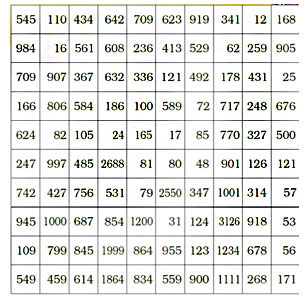
Following is the solution:
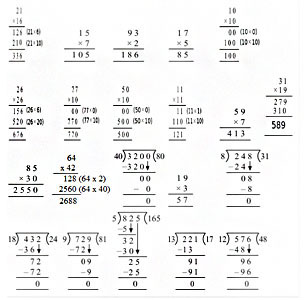
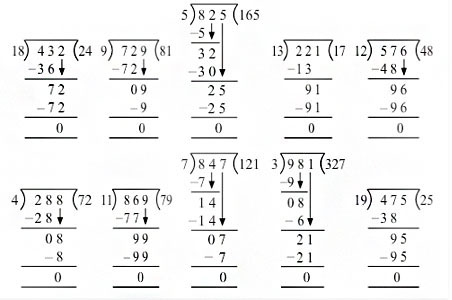
The correct answer is:
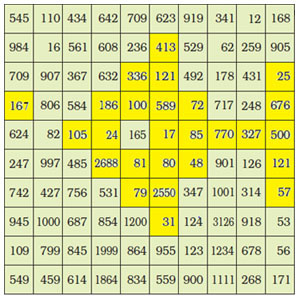
Shyamli bought a battery. She read on it ‘Life: 2000 hours’. She uses it throughout the day and night. How many days will the battery run?
Life of battery = 200 hours
1 day = 24 hours
So, the battery will run:
200 ÷ 24
Quotient = 83 and remainder = 8
So, the battery can run for 83 days and 8 hours.
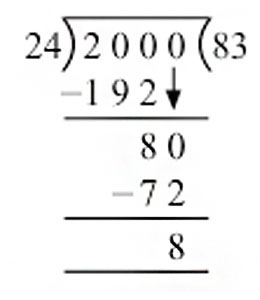
There are 28 laddoos in 1 kg. How many laddoos will be there in 12 kg? If 16 laddoos can be packed in 1 box, how many boxes are needed to pack all these laddoos?
In 1 kg there are 28 laddoos. To find the number of laddoos in 12 kg, multiply 28 by 12.
28 × 12 = 336
Therefore, there are 336 laddoos in 12 kg.
Since 16 laddoos can be packed in one box, to find the required number of boxes to pack 336 laddoos divide 336 by 16.
Therefore, 21 boxes are required to pack all the laddoos.
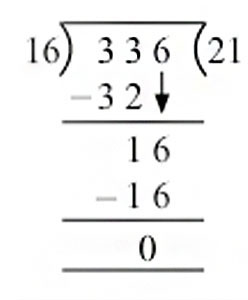
Dolma took a loan from a friend to buy a moped for Rs 9,588. She has to pay it back in equal amounts every month for six months. How much will she have to pay every month? She asked her children to calculate.
Will both of them get the same answer? Discuss.
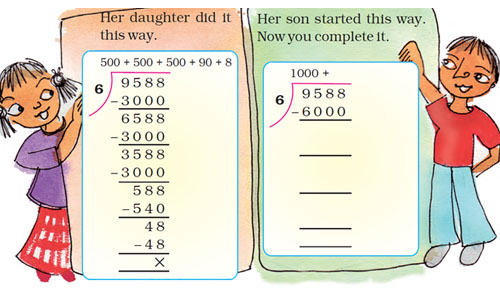
Following are the complete steps for her son’s calculation.
Both of them will get the same answer.
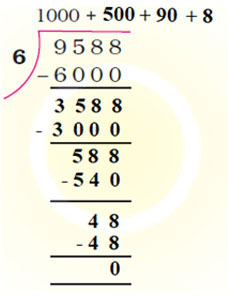
Isha has Rs 1000 with her. She wants to buy petrol. One litre of petrol costs Rs 47.
a) How many litres can she buy?
Money with Isha = Rs 1000. Cost of 1 litre = Rs 47.
Litres of petrol she can buy = Rs 1000 ÷ Rs 47 =?
Isha can buy ________ litres of petrol.
b) Find out if Isha comes to your city, how much petrol can she buy with the same money?
a) On dividing 1000 ÷ 47, we get
Remainder = 13
Therefore, Isha can only buy 21 L of petrol with Rs 1,000.
b) Do it by yourself. Find out the price of petrol at your place and answer this question. The price of petrol varies from place to place. Answers may vary.
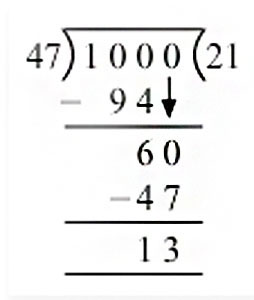
Children are happy today. They are celebrating Children’s Day. Each child will be given 4 coloured pencils from school. The school has 969 pencils. To find out how many children can get pencils the teacher asks them to divide.
Complete Iru’s and Sreeni’s way of division. What is the answer you get?

The correct answer is:
The answer, that is 242, is same in both the ways. So, 242 students can get the coloured pencils.
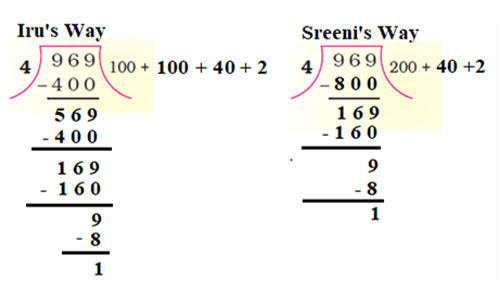
The cost of one book is Rs 47. Sonu buys 23 books.
a) How much money does she have?
b) How much money does she pay for the books?
c) What is the cost of 47 books?
The correct question choice is option (b). There is no information about the money she has, so option (a) is not a good choice. There are two pieces of information, that is, the cost of a book and number of books bought, so asking for some other number of books will make the information 23 books bought irrelevant. Therefore option (c) is not a good choice.
A shopkeeper has 204 eggs. He puts them in egg trays. Each tray has 12 eggs.
a) How many more eggs will he need?
b) How many fresh eggs does he sell?
c) How many egg trays does he need?
The correct question choice is option (c). Number of eggs are already given, so option (a) is not a good choice. There is no information about fresh eggs, so option (b) is not a good choice.
352 children from a school went on a camping trip. Each tent had a group of 4 children.
a) How many children did each tent have?
b) How many tents do they need?
c) How many children in all are in the school?
The correct question choice is option (b). Number of children in each tent has already been given, so (a) is not a good choice. Information is not sufficient to answer (c).
Each line gives a story. You have to choose the question which makes the best story problem.
A shopkeeper has 50 boxes. There are 48 fruits in one box.
a) How much will the shopkeeper pay in all?
b) How many fruits are there in all?
c) How many more boxes he need?
Explain why (a) and (c) are not good choices.
Option (a) is not a good choice because the price is not given in the story.
Option (c) is not a good choice because the total number of boxes is given in the story.
There are 26 rooms in a school. Each room has 4 plants. If each plant needs 2 cups of water, how much water do we need for all the plants?
There are 4 plants in each room. To find the total number of plants in 26 rooms, multiply 26 by 4.
26 × 4 = 104
Since each plant requires 2 cups of water, to find the total amount of water required for 104 plants multiply 104 by 2.
104 × 2 = 208
Therefore, 208 cups of water are required for the plants.
A tank is full of 300 L of water. How much water will be filled in 25 tanks? If 15 buckets can be filled with one tank of water, how many buckets in all can be filled with the water in 25 tanks?
One tank has 300 L of water. To find the amount of water in 25 such tanks, multiply 25 by 300.
25 × 300 = 7500
Therefore, 7500 L water will be filled in 25 such tanks.
Since 15 buckets can be filled with one tank of water. To find the number of buckets that can be filled with 25 such tanks, multiply 15 by 25.
25 × 15 = 375
Therefore, 375 buckets can be filled up.
Admissions Open for
Admissions Open for
The NCERT solution for Class 5 Chapter 13: Ways To Multiply And Divide is important as it provides a structured approach to learning, ensuring that students develop a strong understanding of foundational concepts early in their academic journey. By mastering these basics, students can build confidence and readiness for tackling more difficult concepts in their further education.
Yes, the NCERT solution for Class 5 Chapter 13: Ways To Multiply And Divide is quite useful for students in preparing for their exams. The solutions are simple, clear, and concise allowing students to understand them better. They can solve the practice questions and exercises that allow them to get exam-ready in no time.
You can get all the NCERT solutions for Class 5 Maths Chapter 13 from the official website of the Orchids International School. These solutions are tailored by subject matter experts and are very easy to understand.
Yes, students must practice all the questions provided in the NCERT solution for Class 5 Maths Chapter 13: Ways To Multiply And Divide as it will help them gain a comprehensive understanding of the concept, identify their weak areas, and strengthen their preparation.
Students can utilize the NCERT solution for Class 5 Maths Chapter 13 effectively by practicing the solutions regularly. Solve the exercises and practice questions given in the solution.
CBSE Schools In Popular Cities